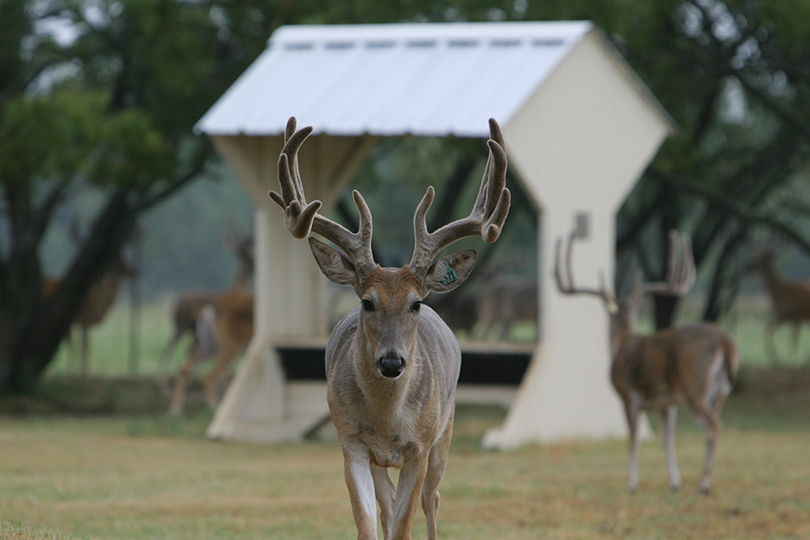By Jennifer Whitlock
Field Editor
A coalition of landowners, conservations, scientists, hunters and concerned citizens are asking the Texas Parks and Wildlife Department (TPWD) to take additional steps to stop the spread of chronic wasting disease (CWD) in cervid populations in Texas.
In a letter dated June 14 to TPW Commission Chairman Arch Aplin, the group asked the agency to tighten enforcement of deer breeders. They also asked TPWD to work closely with the Texas Animal Health Commission (TAHC) and other agencies to expedite the tracing process, improve carcass transport and disposal procedures and strengthen rules and testing related to exotic cervid species. They urged TPWD to review and reinforce existing rules to identify and contain the fatal disease, too.
Their concerns come in the wake of confirmed CWD cases in two captive deer-breeding facilities that were traced back to an outbreak in a Uvalde County deer-breeding facility.
In Texas, CWD has been found in 158 captive cervids located in 11 counties since the disease was first detected in 2012.
“This disease may have been present in the Uvalde County facility for as long as a year prior to detection,” Tio Kleberg, a South Texas landowner, said. “During that time, over 100 potentially exposed deer were transported to other facilities and release sites around Texas. That’s extremely concerning, especially if you own land or live in one of those 95 affected counties.”
Although captive deer breeders, who receive permits from TPWD to possess live deer, are required to meet established minimum testing requirements, the grassroots coalition noted there are significant levels of non-compliance in testing and reporting requirements of captive deer.
While acknowledging the agency’s ongoing efforts to respond to and contain CWD outbreaks, the group said modeling used in establishing current testing requirements proved insufficient to detect CWD with any “reasonable probability and degree of confidence.”
No clearly visible external identification, such as an ear tag, is required under current law for “liberated” breeder deer, leaving no clear way to perform contact tracing, the groups wrote.
About 87,000 deer are currently held under TPWD permits at roughly 950 captive deer-breeding facilities in the state. But there are more than 3.9 million wild deer and 700,000 deer hunters, as well as hundreds of thousands of landowners who rely on hunting to generate income, according to the letter-writers.
“For this reason, the coalition believes TPWD should err on the side of the vast majority of constituents in their response to this outbreak,” they said. “Deer hunting in Texas represents $2.1 billion in annual economic impact derived from license fees, excise taxes, funds raised by hunting and conservation groups and other hunter expenditures. However, the indirect potentially devastating financial impacts on real estate and other rural values that could result from the loss of healthy, huntable wildlife populations would be inestimable.”
CWD only affects members of the cervid family, such as deer, elk, reindeer moose and their subspecies and hybrids. Although there is no evidence that CWD poses a serious risk to humans, the U.S. Centers for Disease Control and the World Health Organization advise not to consume meat from animals with CWD.
The coalition urged TPWD to adopt robust testing, stringent movement restrictions, mandatory testing of CWD-susceptible species and the ability to rapidly conduct contact tracing to secure the safety of Texas’ “wildlife resources, livestock and farming interests, human health and biosecurity.”
“Deer breeders were aware of the potential risks associated with their industry, and now need to be part of the solution,” the group concluded.

